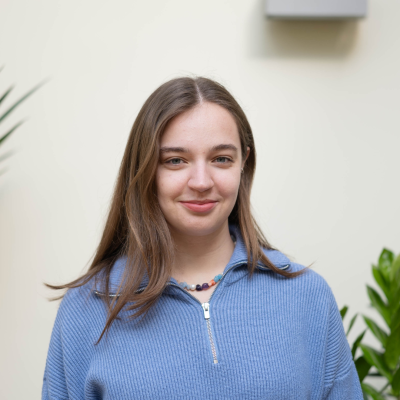
Marija Kozlovskaja
IIRPS VU fourth year student
How did you choose to study at the Institute? What do you appreciate most about your studies at IIRPS VU?
I was interested in studying at IIRPS quite early. From the 10th to 11th grade, I had pretty much decided that I wanted to study the social sciences, so I looked into various study programmes at Vilnius University. I was attracted to IIRPS because of its interesting programme content and the good feedback I received from former (or current) students. Probably the main thing I appreciate the most about studying at IIRPS is that there is a wide range of subjects to choose from, which gives you the opportunity to study and explore the field you are interested in (whether it is philosophy, international relations or communication).
You spent part of your studies on exchange in South Korea; how do you feel about this experience? What are the biggest differences between studying in Lithuania and South Korea?
Universities in South Korea are more like the so-called “American” model – a large campus with many different clubs, associations, and stadiums at the same location, with a variety of festivals taking place every semester featuring some of South Korea’s most famous performers. The university organises a plethora of free (or almost free) tours of South Korea, which give you the opportunity to get to know the country and its culture better. I had the opportunity to go to the North Korean border, where I was able to see from afar how people live in one of the most closed off countries on Earth and to get a glimpse of the ‘human’ side of the Korean War history. During the tour, I heard many stories about how millions of families have been affected by the hostilities and how, for more than 70 years, people have been unable to see their loved ones in the northern part of the Korean peninsula. Such stories help us to better understand how historical tragedies affect contemporary political processes. All in all, during the exchange, I was exposed to many opportunities to get closer to the country’s main cultural and historical features.
Would you recommend other students to make use of exchange opportunities? What were your most memorable experiences of studying on the other side of the world?
The experience of studying in such a distant country has been one of the most meaningful and rewarding experiences of my life. Not only did I have the opportunity to get to know the distinct and unique culture of South Korea, but I also had the chance to realise that for a long time, my value system and my general worldview had been based on a largely “Eurocentric” perspective. Both my study experience and practical experience in a Far Eastern country have significantly broadened my thinking about the importance of individual regions and have allowed me to gain insight into the particularities of the political system in this region. At my university, I took several courses focusing on the international relations system in the Far East, which gave me a lot of new insights into the region’s security issues and economic relations. The lectures were attended by students from different regions of the world, which made the discussions very interesting and enriching. So, I would definitely recommend taking the opportunity to take part in an exchange to broaden your worldview and to realise just how big the world really is (especially with the ERASMUS+ scholarship to go beyond Europe).
You are currently working on your bachelor’s thesis; what is your topic? How is it going? How has your interest in different areas of political science evolved and shaped throughout your studies?
I am writing my bachelor thesis on the causes of the spread of jihadism in Nigeria and Mali. My desire to write on this topic was motivated by my desire to explore/demonstrate the importance of extending conventional norms of state security. I aim to delve deeper into the social problems different societies face and how this can influence the emergence of radical movements. I also took courses on Islam and international relations in the Middle East in my second and third years, which provided me with theoretical knowledge of the various Islamist movements and the reasons for their emergence.
What would you like to wish the IIRPS VU community?
I would like to wish the IIRPS VU community to continue to grow and become more internationally known, as I believe that our professors and researchers really deserve to be heard around the world.







